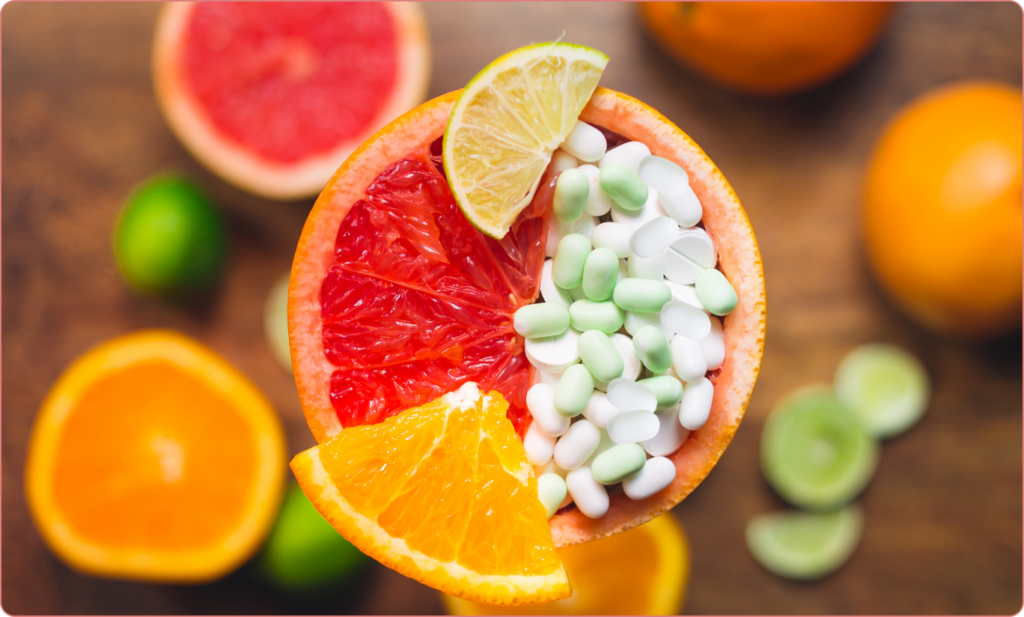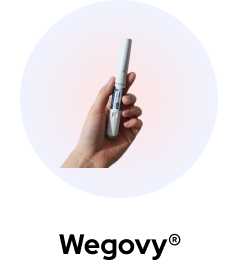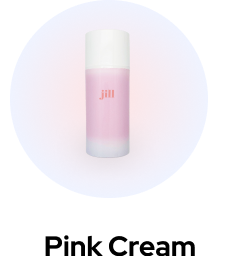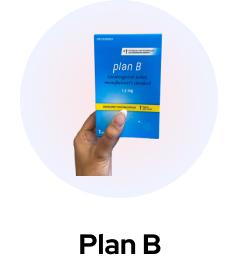Every stage of life comes with its own unique challenges. Nutrition follows the same lines and vitamins and minerals are essential to life. Ideally, we’re striving to eat a diet that can provide adequate levels of essential nutrients, but sometimes we need more than what we can realistically get from food alone. From childhood to adolescence and adulthood to parenthood and beyond, our bodies are constantly changing. Just when we think we have everything figured out, our hormones change, stressors affect sleep, mood and fatigue. Aaaaand we have to go back to square one.

So we’re going to make it a little less complicated by talking about the key nutrients that you should consider for each life stage. And if you’re vegan or vegetarian, we’d recommend also reading our other blog post for those who don’t consume animal products.
Vitamins for all ages
Let’s first start off with some basic supplements that are helpful for anyone.
Vitamin D
Vitamin D is essential for nerve, DNA, and bone health. The great news is that in addition to many foods like fatty fish and fortified dairy that can provide us with vitamin D, our body can also make its own vitamin D. It takes about 10-15 minutes of unprotected sun exposure at least three or more times per week to be able to get enough vitamin D from the sun.
The bad news is that this is not often advisable, because many people require the use of sunscreen during the hotter months to reduce skin cancer risks, and our Canadian winter and fall months just don’t give us enough sun exposure to be able to keep up. It’s helpful to take a vitamin D supplement if you aren’t already getting vitamin D from a multivitamin.
Omega 3s
Omega 3s are also a great nutrient to consider supplementing at any stage of life. It is especially helpful to supplement with omega 3 because typical Western diets are particularly high in omega 6, but very deficient in omega 3s. These two vitamins need to be held in balance because:
- Omega 3s are anti-inflammatory which helps to reduce chronic disease risks and keep our heart healthy whereas,
- Omega 6s are pro-inflammatory which helps to fight infection.
Since we likely are getting adequate omega 6 without even having to consciously try, we should try to get adequate omega 3s in our diet. Omega 3s can be found in fatty fish like salmon, flax seeds, and fortified eggs.
Now that we have discussed some baseline supplements that most Canadians can benefit from, let’s dive straight into the supplements that can help us at each life stage.
Vitamins to support adulthood if you aren’t taking contraceptives (birth control pills)
Vitex Chasteberry
Vitex fruit has traditionally been used to support menstruating people. It can help reduce symptoms of PMS including bloating, cramping and mood changes (Verkaik, 2017).
Folate or vitamin B9
You should consider taking a folate vitamin if you aren’t taking oral contraceptives for a few reasons.
To start, folate is essential for healthy red blood cell production, and cell growth and functioning. If we don’t have enough folate in our diet this puts us at risk of anaemia.
Also, it’s good to take it if you’re thinking about trying for a baby or are already pregnant as it reduces the risk of neural tube defects in babies.
Vitamins to support adulthood if you are taking oral contraceptives (birth control pills)
People that are taking an oral contraceptive have different needs than those that are not (Palmery et al, 2013) as they’re are more likely to have depletion of vitamin B2, B6, B9 (folate), B12, Vitamin E and C, selenium, zinc and magnesium. As this is a pretty wide range of nutrients that you might be lacking, we’d recommend taking a multivitamin.
Multivitamin
There are many multivitamins and it is important to find the right one that works for you. Some should be taken with a meal, others on an empty stomach. Consider your lifestyle and habits and read the directions first to help narrow the options down.
Some multivitamins might not sit well with those prone to bowel issues like people with IBS. One common offender of this is iron. There are many ingredients that can be used for iron, but ferrous sulphate is notorious for causing side effects like stomach pain, nausea, gas, constipation, and diarrhea (Tolkien, 2015). Consider supplements that contain ferrous gluconate instead since it is less commonly associated with stomach issues (“Ferrous gluconate Side Effects: Common, Severe, Long Term – Drugs.com,” n.d.).
If you are unable to find a multivitamin with this form of iron then consider consulting a pharmacist for additional recommendations. Good news, you can send a quick email to our team at pharmacy@jill.health for help.
If you want to take an iron supplement separately, we recommend ferrous polysaccharide. This type of iron has fewer side effects and less of a metallic taste. One tablet a day is the recommended dose, and it can be taken with a meal.
For those wanting to get pregnant
If you weren’t already sold on the idea of taking a vitamin D supplement, vitamin D status has also been shown to affect libido. There is also some evidence that suggests that women with low vitamin D are also more likely to have low libido (Jalali-Chimeh, 2019). However, there are additional supplements that may also help those that aren’t deficient in vitamin D.
Phytoestrogens
With the stress of trying to get a bun in the oven, getting in the mood can become difficult. Some phytoestrogens may work to increase sex drive. There has been some evidence that suggests that phytoestrogens can help to improve vaginal blood flow, collagen content, lubrication and more (Kudesia, 2021). Phytoestrogens from Trigonella foenum-graecum L, Lepidium meyenii, maritime pine bark, and Foeniculum vulgare show promise for improving female sexual function (Najaf Najafi & Ghazanfarpour, 2018). It can be worth giving one of these a try if you’ve lost your mojo.

You’re Pregnant!
Building a whole other person is hard work! Your body not only needs more energy to do this, but it also needs more nutrients. Those adorable lil parasites pull nutrients from your body to aid in their growth and getting enough vitamins and minerals to sustain a healthy pregnancy can be difficult with just food alone. You’re also very likely to be busy and the added stress of a perfect diet would be waaaaay too much pressure.
Prenatal supplement
People that are pregnant generally have higher requirements for most nutrients such as omega 3, iron, magnesium, zinc, folate, Vitamin B6, B12, C, and A (Canada, 2009). For this reason it is important to take a prenatal supplement.
As constipation can be real common with pregnancy, it is again important to look at the ingredients. If you struggle with constipation, consider trying to get a supplement that does not contain iron in the form of ferrous sulphate. Often adding fibrous foods like carrots, dates or figs can help as well as chugging water.
Psyllium or Fibre Supplements
Constipation means you need some help from fibre. If you aren’t getting adequate fibre from your diet, it can be helpful to take a fibre supplement to manage. It’s important to start with a small amount and consume lots of water to help get the full benefit.
If you’re lactating
Your nutritional needs are significantly higher when lactating and chest/breastfeeding. It is a good idea to continue with a prenatal vitamin during this time as the need for Vitamin C, B6, B12, Zinc, and folate continues. You’ll also likely be fiending water, so keep sipping!
You’re going through perimenopause
Perimenopause marks the start of the shift to changes in estrogen, eventually leading to menopause. For some people, this could start in your 30s but most often in your early 40s. Perimenopause can come with hot flashes, extra belly fat, a loss of muscle, unwanted hair growth and more. Fun! Many dealing with these delightful symptoms are tempted to look for supplements to prevent and manage them effectively. You might have heard about increasing your intake of soy products or other isoflavone supplements to increase estrogen. Unfortunately, there is limited evidence for effective supplements to encourage estrogen or estrogen-type chemicals, thus prescription medication (like hormone replacement therapy) is the only clinically proven option. As women age, estrogen levels decrease and bone strength will also decrease. Bones can become brittle and more prone to fracture. Taking a calcium and vitamin D combination supplement will help you age gracefully.

You’re going through menopause
Menopause marks a major hormonal shift: with much lower estrogen levels, you’ll stop menstruating amongst other changes. This transition usually happens in the mid 40s to mid 50s.
Calcium
During menopause calcium deficient people are at a higher risk of the onset and progression of osteoporosis. Osteoporosis is a disease of the bones that results in tiny holes (-porosis) in your bones (osteo-). Like swiss cheese but way less fun. Our body is not only at risk of this due to an increase in age, but also because of a reduction of estrogen which is essential to bone formation and maintenance. Calcium intake is required to maintain calcium levels in the blood and prevent leaching of calcium from the bones into the blood. This is why when you reach 50 and above, you’ll be recommended to have 1200 mg of calcium per day as compared to the 1000 mg of calcium recommended for women between the ages of 19-50 (“Dietary Reference Intakes – Canada.ca,” n.d.). Calcium can be found in many foods: dairy products, almonds, and dark leafy greens like broccoli, bok choy and much more. However, due to the increase in need for calcium, a calcium supplement can be beneficial for those that might have a smaller intake of calcium. A 2020 study showed that only 42 – 52% of Canadians are meeting the recommendation for calcium intake without the use of a supplement (Vataparast et al., 2020).
The short answer – everyone could benefit from vitamins and supplements!
In an ideal world, we would all have a perfect diet and consume enough of every nutrient to prevent any deficiencies. Unless you are a rare unicorn of a human, you’re like us and need some help supplementing your diet. If we want to stay healthy throughout our lives, it is important that we understand what deficiencies we might be at risk for and supplement these nutrients. Many other factors other than life stage can impact your risk for deficiencies. Some factors that impact deficiency risk include diet (i.e. vegan, vegetarian), food aversions, health conditions, activity status, and ethnicity. A registered dietitian can help you understand if there might be other nutrient deficiencies that you might be at risk for. In general, it is important to consult a health professional that understands your medical history before you start on any type of supplement. Consider consulting with your physician, nurse practitioner, pharmacist, or dietitian first.
References:
Canada, M. of H. (2009). Prenanatal Nutrition Guidelines for Health Professionals: Background on Canada’s Food Guide. In Her Majesty the Queen in Right of Canada. Retrieved from https://www.canada.ca/content/dam/hc-sc/migration/hc-sc/fn-an/alt_formats/hpfb-dgpsa/pdf/pubs/guide-prenatal-eng.pdf
Dietary Reference Intakes – Canada.ca. (n.d.). Retrieved August 11, 2022, from https://www.canada.ca/en/health-canada/services/food-nutrition/healthy-eating/dietary-reference-intakes/tables/reference-values-elements-dietary-reference-intakes-tables-2005.html
Dietitians of Canada, & PEN. (2022). Healthy Eating Guidelines for Menopause.
Ferrous gluconate Side Effects: Common, Severe, Long Term – Drugs.com. (n.d.). Retrieved September 5, 2022, from https://www.drugs.com/sfx/ferrous-gluconate-side-effects.html
Palmery, M., Saraceno, A., Vaiarelli, A., & Carlomagno, G. (2013). Oral contraceptives and changes in nutritional requirements. European review for medical and pharmacological sciences, 17(13), 1804–1813.
Tolkien, Z., Stecher, L., Mander, A. P., Pereira, D. I., & Powell, J. J. (2015). Ferrous sulfate supplementation causes significant gastrointestinal side-effects in adults: a systematic review and meta-analysis. PloS one, 10(2), e0117383. https://doi.org/10.1371/journal.pone.0117383
Vatanparast, H., Islam, N., Patil, R. P., Shafiee, M., & Whiting, S. J. (2020). Calcium Intake from Food and Supplemental Sources Decreased in the Canadian Population from 2004 to 2015. The Journal of nutrition, 150(4), 833–841. https://doi.org/10.1093/jn/nxz318
Verkaik S, Kamperman AM, van Westrhenen R, et al. The treatment of premenstrual syndrome with preparations of Vitex Agnus Castus: A systematic review and meta-analysis. American Journal of Obstetrics and Gynecology; 217: 150–166. https://doi.org/10.1016/j.ajog.2017.02.028












 (US)
(US)